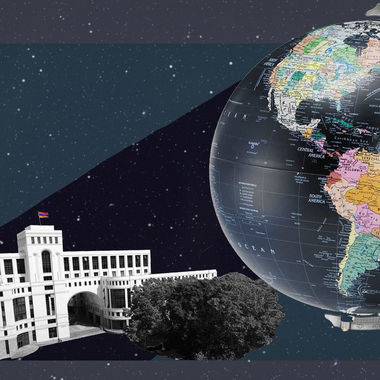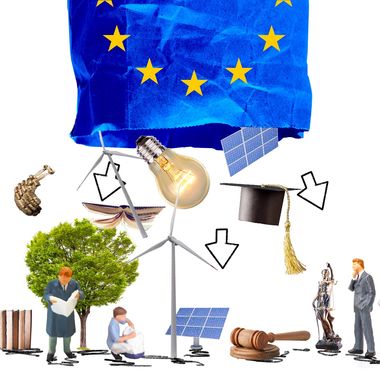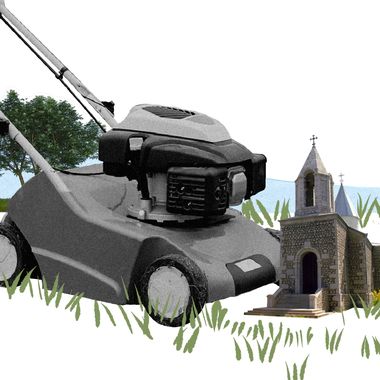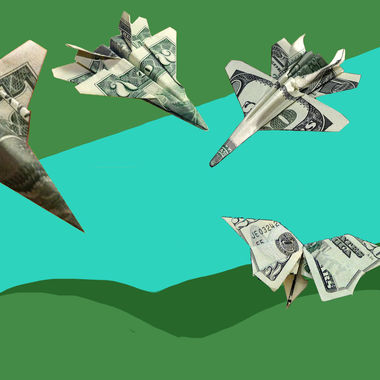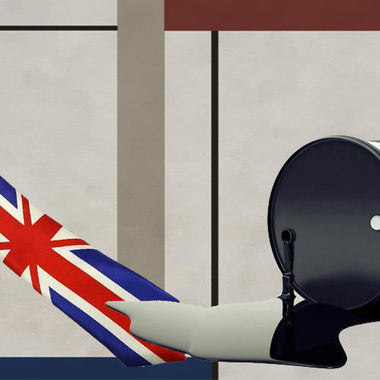Mon Jul 19 2021 · 8 min read
Armenia’s Role and Place in the Geopolitical Environment of the South Caucasus

By Areg Petrosyan
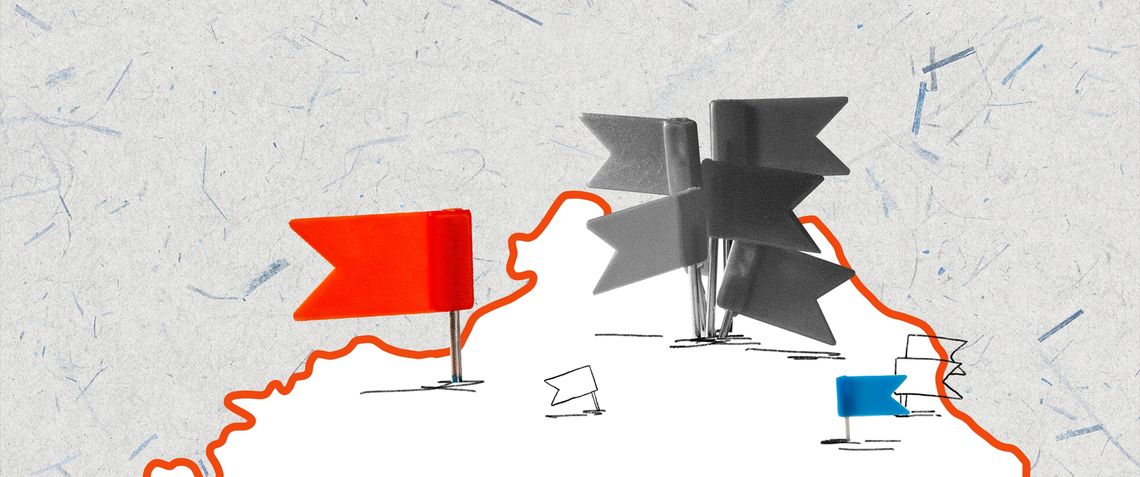
Illustration by Armine Shahbazyan.
The Geopolitical Environment in the South Caucasus
Despite the widespread perception that Armenia is the only loser in the 2020 Artsakh War, it should be noted that the creation of a new geopolitical reality in the region by Baku and Ankara opened a "Pandora's Box" and forced the main stakeholders (Russia, Iran, Turkey, Armenia, Georgia and Azerbaijan) to re-articulate their geopolitical agenda. The “Pandora’s Box” analogy for the region was further perpetuated by the importing of terrorists and mercenaries into the war zone by Azerbaijan and Turkey. This phenomenon was extensively mentioned in statements made by the Foreign Intelligence Service of Russia and the Russian Foreign Ministry, French President Emmanuel Macron and Syrian President Bashar al-Assad. The officials pointed to Turkey as the organizer of the transfer, and former U.S. Secretary of State Mike Pompeo specifically noted that this was designed to support Azerbaijan. The ECtHR adopted an interim measure against Turkey for its involvement. It was an open secret that Azerbaijan not only initiated the war, but was supported and encouraged by Ankara to intensify the violence under the diplomatic and political cover provided by Turkey. The more important development from a macro-analytical perspective, however, was the change in the regional status quo and, by extension, the geopolitical interests and objectives of the main regional actors. The following provides a snapshot of the developing interests of the regional players.
The Georgian Factor
Tbilisi plays an important role as a transit artery of the South Caucasus, in particular for Baku in the export of hydrocarbon raw materials. Unblocking communications in the region could hit Tbilisi hard if Azerbaijan and Turkey use alternative routes to negotiate more favorable terms for continuing to transit through Georgia. While economic cooperation between Yerevan and Baku still seems a long way off as servicemen continue to be killed in border areas, Moscow has been pushing for progress on this point of the November 9 ceasefire agreement. With Russia firmly in control of a new Armenia-Azerbaijan land route, Armenia’s dependence on Georgia’s Upper Lars highway to reach Russia would also diminish.
The Russian Factor
Despite Russia's efforts to end the war in Artsakh in 2020, the actual inaction of the Russian-led CSTO against the background of Azerbaijan's incursion into the territory of Armenia in May 2021 raises a number of concerning questions for Yerevan. At the same time, the Russian peacekeeping contingent in Artsakh is currently the only guarantor of the security for the population of Artsakh. The total control of Russia in post-war Artsakh shows its dominant role in the OSCE Minsk Group format. However, Russia faces new challenges: it is no longer the only major power in the region. After three decades of assisting Azerbaijan develop its military, Turkey maneuvered itself to become the second-most powerful regional player after Russia, making it Russia’s main geopolitical challenger for influence in the South Caucasus. James Sherr, a Senior Fellow of the Estonian Foreign Policy Institute, writes that, in recent years, "Russia and Turkey have learned to live with an enforced interdependence maintained through accommodation, deterrence and trials of strength." This kind of strategy has been applied both in Syria and Libya, and may possibly serve as a working model in addressing future developments concerning Nagorno-Karabakh.
The Turkish Factor
Aside from the fact that Turkey provided extensive support to Azerbaijan to win the war, it is important to understand its main short-term goal: the opening of an access route to Azerbaijan and Central Asia through Meghri, which will shorten the route for shipping goods and also allow for the expansion of Turkish economic influence over Armenia itself. Turkey continues to hold the prospect of bilateral diplomatic relations with Armenia as a playing card, invoking it as a pressure tactic against third countries, for example when U.S. President Joe Biden used the word “genocide” in his April 24 message in 2021.
The Iranian Factor
Until recently, Iran was the only country that had a border with all three conflicting parties: Armenia, Azerbaijan and Artsakh. The shattering of the status quo that resulted after the war has brought a security dilemma for Iran. Ankara's unconditional support for Baku has accelerated Turkish-Azerbaijani cooperation, which may lead to developments that run counter to Iran's interests in the region. Iranian concerns are as follows: 1) Turkey and Azerbaijan may attempt to include Armenia into South Caucasus pipeline diplomacy, thus limiting the strengthening of Iranian-Armenian cooperation in the energy sphere; 2) The reinforcement of a Turkish military presence across its northern border implies a NATO security threat; 3) Having expanded its sphere of influence into the South Caucasus through its expansive control over Baku, Turkey’s role as a regional player may be leveraged as a counter-weight against Iranian influence in the South Caucasus; 4) Israeli arms shipments and access to advanced weaponry for Azerbaijan was also a game changer in the war, and continued military cooperation between the two is now perceived as a security threat. Specifically, Israel supplies more than 60% of the Azerbaijani military's arms. Because of it’s geographic proximity to Iran, Azerbaijan is seen as an enticing ally for “Israeli intelligence-gathering and military operations, should the need arise.” To that end, Baku’s top priority is the formation of a Turkey-Azerbaijan-Israel triangle which can potentially become a serious regional balance and threat to not only Iran’s national security and interests but will also try to challenge Russian regional hegemony.
Iran’s three northern provinces of West Azerbaijan, East Azerbaijan and Ardabil have a large Azerbaijani-speaking population that could be incited against the central government in the future.
The EU Factor
The EU is not considered a main stakeholder in the current geopolitical environment. Brussels has mostly been spreading its influence through soft power networks and financial aid. While the 2020 Artsakh War showed the EU’s disinterest as a security actor, post-war economic and humanitarian aid show renewed engagement in Armenian-EU cooperation. For example, the EU provided a total of €16.9 million in humanitarian aid to Artsakh during the post-war period. Further, under the special five flagship initiatives, the EU plans to mobilize €2.6 billion for Armenia. These resources will encompass transport connectivity, resilience and recovery of the southern provinces, energy efficiency and renewable energy, digital transformation and support for Small and Medium-sized Enterprises (SMEs). The EU also provided €100 million to Armenia to fight COVID-19. The EU-Armenia Comprehensive and Enhanced Partnership Agreement (CEPA), which came into force on March 1, 2021, will provide Armenia over €450 million in additional financial assistance, along with the "EU4Regions" program that will be applied for reforms in the social, economic and cultural spheres.
The US Factor
The U.S., along with the EU, is also considered an actor that plays its hand mostly in the humanitarian and economic spheres when it comes to Armenia, although it has provided funding to both Armenia and Azerbaijan for military training, reforms and modernization. Specifically, the U.S. has been providing extensive military funding to Azerbaijan in the last three years to develop anti-drug trafficking programs by strengthening its naval presence in the Caspian Sea. U.S. posturing in the region is more defined by counterbalancing or limiting Russia’s influence than it is by specifically attending to the needs or interests of Armenia or Azerbaijan. That being said, Armenia’s democratic advances after the Velvet Revolution, and the formation of a regional democratic dyad with Georgia, has incentivized Washington to take a more active role in at least supporting multilateral structures (such as re-energizing the OSCE Minsk Group) in addressing the Artsakh issue.
Armenia’s Role and Place in the Geopolitical Environment in the South Caucasus
The 2020 Artsakh War has left Armenia in an expansive crisis. The parallel territorial encroachments by Azerbaijan into Syunik, the inability to rely on the CSTO to help defend its borders and the strengthening of the Turkish-Azerbaijani tandem make it necessary to understand the role and place of Armenia in the newly-formed geopolitical environment. Two major challenges have emerged for Armenia:
-
Installing defensive infrastructure across more than 500 km of new border lines with Azerbaijan is a top priority for Armenia to resolve in order to deter any further incursions by Baku.
-
Azerbaijan’s politicization of the unblocking of communications in the region, and its insertion of a “Zangezur corridor” narrative, has hampered the process and created a new layer of problems that increase, rather than mitigate, security concerns. The recent cross-border violence on the Nakhichevan border, which had otherwise been relatively calm both throughout and after the war, marks a new escalation.
Considering the 2020 Artsakh War as a catalyst for geopolitical changes in the region, it should be noted that Iran has never been tolerant of the possible presence of trans-regional powers (for example, the United States or NATO) in the region and made it clear that "the Karabakh crisis should be resolved with the political will of Armenia and Azerbaijan." At the same time, Iran supports Russia's mediation efforts and the participation of other regional powers in the settlement of this conflict. Nevertheless, the support of regional powers (in this case, Russia) and the obvious attempts to prevent the spread of Ankara's further influence show the sensitivity and complexity of the Nagorno-Karabakh conflict. The extent to which Armenia may leverage Iranian and Russian interests against growing Turkish interests in the region, and by extension, paint Baku as a conduit for Turkish power, will be crucial in allowing Yerevan to counterbalance the regional powers against the Baku-Ankara tandem.
Also See
Podcast
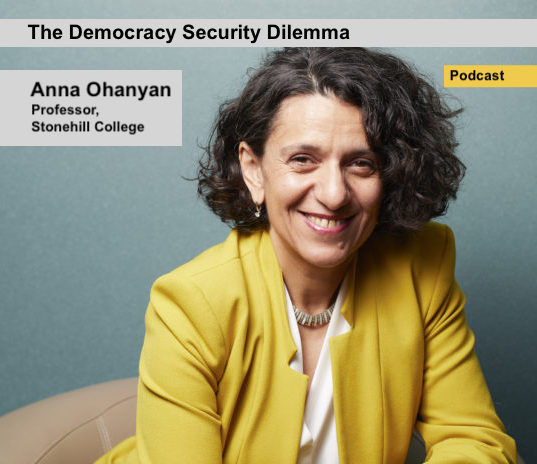
One of the narratives in circulation during the highly polarized election campaign in Armenia is that some democratic values can and should be sacrificed for security. Anna Ohanyan, Richard B. Finnegan Distinguished Professor of Political Science and International Relations at Stonehill College in Massachusetts speaks about the importance of sustaining and building democratic institutions in post-war Armenia.
articles
Why Is Armenia Terrible at Foreign Policy? The Failure of Multi-Vectorism and the Need for a New Doctrine
By Nerses Kopalyan
Armenia’s defeat in the 2020 Artsakh War was a collective failure of all state bodies and institutions. The new Armenian government must construct a foreign policy doctrine defined by “strategic engagement.”
The EU’s “Building Back Better” Policy Gaining Momentum in Armenia
By Anna Barseghyan
After remaining on the sidelines of the 2020 Artsakh War, the EU seems to be back with a renewed and impressive strategy for Armenia. With this new agenda, is the EU trying to counterbalance the influence of other regional players?
Current Projects and Plans of Azerbaijan in the Conquered Regions of the Artsakh Republic
By Areg Petrosyan
After its victory in the 2020 Artsakh War, Azerbaijan started massive restoration projects in the seven conquered regions of the Republic of Artsakh. These projects will undoubtedly impact Armenia.
Military Expenditures and the Economy: Behind the War of Weapons
By Ani Avetisyan
Azerbaijan increased its military spending by 17% in 2020; this was among the largest annual increases in Eastern Europe and Eurasia. Ani Avetisyan breaks down the numbers of the military expenditures of both Armenia and Azerbaijan.
How Economic Ties Swayed European Countries Toward Azerbaijan
By Hovhannes Nazaretyan
Lucrative economic ties with Azerbaijan have influenced the United Kingdom, Italy and Hungary, among others, in their stance during and after the 2020 Artsakh War.


